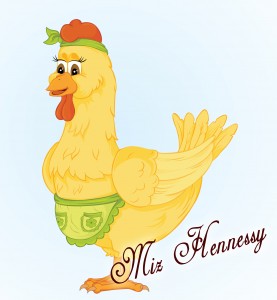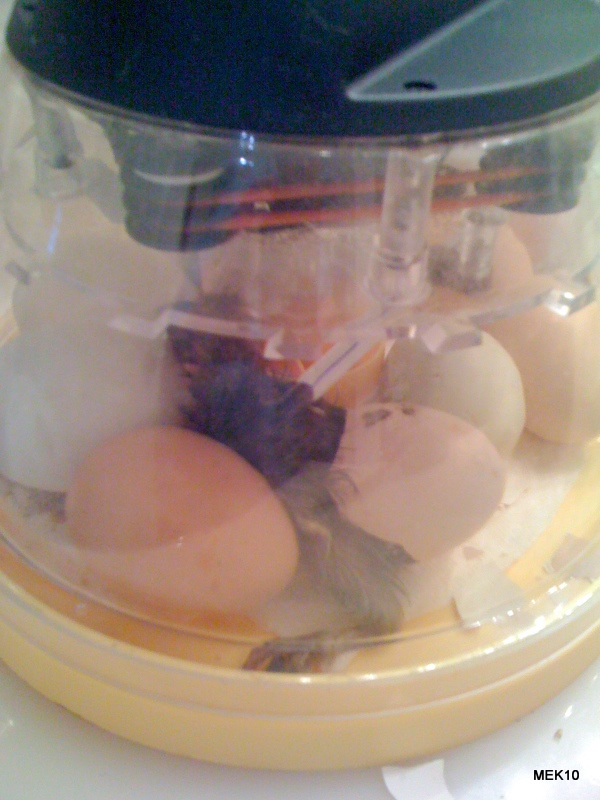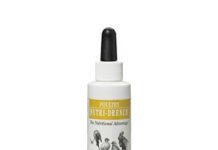 Hi folks! Miz Hennessy here – your resident Chicken-in-Charge at your service to answer your questions and provide you with all sorts of cool facts!
Hi folks! Miz Hennessy here – your resident Chicken-in-Charge at your service to answer your questions and provide you with all sorts of cool facts!
The latest news at the Urban Homestead is that some baby ducklings have landed!
So, you know what that means… nobody is doing any work and everyone is spending far too much time making googly-eyes at the little floof-balls. Jordanne, camera in hand, will be working on a film short of raising ducklings that will (hopefully) be published soon on Youtube. But in the meantime, I’m here to provide some FAQs!
Q. WHY KHAKI CAMPBELLS?
A.Campbell ducks are small, personable and easy to handle which makes them a perfect asset for a small urban homestead.
Q. ARE THEY LOUD?
A. No, only when excited, scared, while being fed, or when begging for treats! They are normally very quiet with often a soft chattering sound or gentle grunts. Khaki Campbells are also known for being one of the quieter breeds of ducks.
Q. DO THEY SMELL AND ARE THEY MESSY?
A. Ducks can be messy if they are not managed properly. They enjoy shoveling their food around and splashing water. They also extremely enjoy mud. So a little ingenuity is all that it takes to make clean up easy. Because ducks drink so much water, their manure is fairly diluted and is easily absorbed into the mulch or bedding spread in their coop. Sometimes a hose and a rake is all that is need for daily maintenance.
Q. HOW MANY EGGS DO YOU GET?
Campbell Ducks were bred to be exceptional egg layers. A Campbell’s prolific egg laying capabilities are one of its most recognizable characteristics. Widely considered to be the most productive laying duck, hens have been consistently recorded to lay an average of 350 eggs per year. You can usually expect one egg a day from each duck although occasionally they will take a rest and skip a day.
Q. DO DUCK EGGS TASTE DIFFERENT?
Khaki Campbell eggs are large, have smooth white, sometimes greenish shells and a more intense flavor. Cooking with duck eggs doesn’t call for major revision in recipes or in technique but, because they have more fat and more albumen (the protein in the white) than chicken eggs, they have more structure when cooked. For this reason, many people prefer duck eggs for baking as the extra protein creates additional loft in cakes. But since the deep yellow yolks are so rich, baked goods may also be richer with duck eggs. Duck eggs cook a bit faster than chicken eggs when hardboiled and when scrambled, they are firmer in texture. You can freely substitute duck eggs for chicken eggs in cakes, cookies, and breads.
Q. DO THEY NEED A POND?
A. Campbell’s are primarily land ducks. They do not require large amounts of swimming water to keep healthy as most other breeds do but they definitely enjoy playing or taking a bath in small trays of water.
Q. DO THEY FLY?
A. Domesticated ducks have been bred in captivity for hundreds of years, making their body weight too heavy to allow flight.
Q. CAN YOU TELL ME MORE ABOUT THE KHAKI CAMPBELL BREED?:
A. Khaki Campbell’s originated in England, developed in 1901 by a Ms. Adele Campbell of Uley, Gloucestershire. Khaki Campbell’s are a cross between Indian Runner, Mallard, and Rouen, effectively combining egg laying capability and a medium sized bird.
Have questions? Send them to me












I love my Khaki Campbells. They are easy to raise. I have a three year old hen who lays an egg almost every day as your article stated. We butcher the drakes, and they have a great taste.
I have Khaki Campbells that are 3 weeks old. This week I noticed two or three ducks limping. It looks like a club foot. One foot is larger than the other with a knot at the joint. The knot is warm to the touch but is solid. The ducks are walking and eating fine but limping. I have a total of 22 and since yesterday all have the same problem. I have been keeping them in my duck barn on dry leaves. I feed them Flock Raiser and greens. I raise muscovy ducks and this is the same feed that they recieve until they are released into the yard/pasture/woods at 4 weeks. Do you have some suggestions? I was thinking of getting your suppliment. I have been unable to find any natural feed in my area.
This is a curious situation. I would think an injury (sprain or tendon issue) but you said all 22 (?) ducks have the same problem. Other issues would be gout or arthritis but mostly in older birds or an injury healed wrong.
May I ask a few questions – sorry if some of this seems obvious:
1.) Have you had them since babies?
2.) Have you turned them over and examined the pads of their feet?
3.) The “joint” you mention — is that where you would imagine a duck’s ankle to be? Or is it higher up?
That said, initial thoughts are that it’s a bacterial infection affecting all of them… the same stuff that causes bumble foot. I wonder if something was in the soil as I’m also not sure why it would affect all of them.
If any had a puncture wound or a cut on their foot, this could allow bacteria to enter their bloodstream and spread to the joints causing the septic arthritis.
Staph infections cause the ‘ankle’ or hock to swell and infected joint and leg are hot to touch.
This is usually treated with antibiotic injections. Soluble antibiotics in the drinking water is of less use and not as effective.
However, I would start them on some apple cider vinegar in their water right now. I’ll research some other natural solutions. If you want to send me a photo of the affected leg(s), you can at mizhennessy(at)backyardsandbarnyards.org
This is all so helpful!! thank YOU!
we are in process to learn more about duck before we get any.
we are new to this.
i was wondering do KC also eat bugs? pill bugs in particular.
we have tons of it.
also, how are they with garden beds, pls?
we heard that ducks are better around the vegetables in beds then chicken. is that true?
also, who is your supplier for KC and chickens, pls?
thank YOU kindly,
bubi
Hey from North Carolina! How long to KC’s lay for? Are you butchering them when they are done laying? I’ve been reading up on this breed, and rarely have I read so much about owners considering them pets, naming them, etc. Yet I’ve also read they live about 10-15 years, so wondering how much of that is laying time and if most of these owners are keeping them well pasa the time they finish laying, just as pets? Enjoying the site – thanks!!